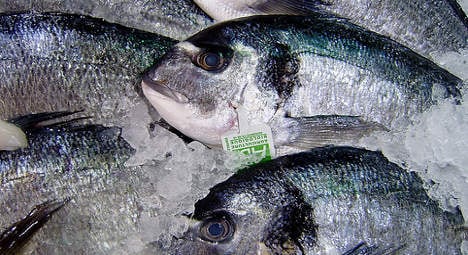There's no doubt fish is healthy, but polluted water supplies mean people should not eat more than two portions a week, France’s food safety agency ANSES has warned.
After spending a year studying the health benefits gained by taking in Omega 3 oils contained in fish compared to the dangers posed by toxic contamination, ANSES has finally concluded that the safest option is to cut the weekly intake of fish down to two portions.
In a report issued last week the agency says that risk of contamination by mercury and other toxins including PCBs (Polychlorinated Biphenyls) means that our intake of fish should now be limited.
Despite most scientists agreeing that the Omega 3 fatty acids found in fish have vital health benefits that can help cut down the risks of certain cancers and can also increase brain function, a growing number of experts have been concerned by the impact of increased pollution in sea and river waters.
According to a report on pollution published earlier this year, deforestation has resulted in an estimated 260 tonnes of mercury being discharged into lakes and rivers across the globe. The amount of mercury present in sea water up to a depth of 100 metres has doubled in the last 100 years, the report said.
People are now advised to vary the type of fish they eat but one of the two weekly portions should always be a fatty fish like salmon, sardine, mackerel or smoked trout, ANSES says.
However certain types of freshwater fish like bream, carp and catfish should only be consumed once a month and even less that that for pregnant women and children.
Pregnant or breast feeding mothers and young children however need to take extra caution when it comes to certain fish like pike, bream, skate and tuna, which as predators could contain higher levels of mercury.
ANSES also advises the fish must be "well-cooked" from fresh and that people should avoid eating shellfish that do not come from an "authorized farming area”.
There was also some important advice for sushi lovers. Anyone who enjoys making maki or sashimi at home is advised to freeze the fish for seven days in order to destroy all the parasites present.



 Please whitelist us to continue reading.
Please whitelist us to continue reading.
Member comments